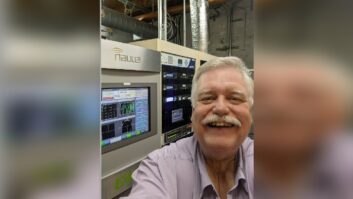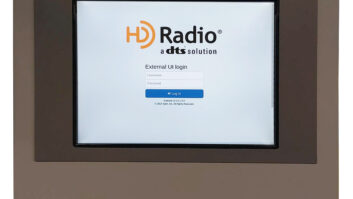Glynn Walden recently retired from his position as senior vice president of Engineering for CBS Radio. He actually held that position twice, from 1980 through 1997, and then again from 2004 till August of this year. In between, he served as the vice president of Broadcast Engineering for iBiqity Digital. Walden is still involved with CBS radio as a consultant, and he was kind enough to take a few minutes out of his schedule to provide some perspective on the continued acceptance of HD Radio.�
�
Radio: Do you think a parallel can be made between the eventual acceptance of FM radio, after it had existed for nearly 20 years, and HD radio, which has been around a little over 10 years now?
Glynn Walden: Is there a parallel with the slow acceptance of FM, in the 1950s and early 1960s, and HD radio in the 2000s? Yes and that parallels color TV also.
FM had been around since 1945 before FM car radios became available in the late ’60s. I remember seeing FM radios in home Hi-Fi in the late 50s and early 60�s but the first car receivers, aftermarket, were in the late ’60s. And just like with HD radio, availability in the auto product made FM a viable medium.
Anytime there is a regulated broadcast transmission system being implemented it must go through years of testing and a timid manufacturing community.
�
Radio: What about the transition to FM stereo?� Were there people then saying it wasn’t necessary or worth doing?
GW: I really don�t know as I was just beginning to be involved with broadcasting.� It was my first job was in the mid to late 60�s�at an FM mono station and people were just beginning to be interested in FM.� My company wanted me to move quickly to be the first station in Miami to broadcast in stereo.� And I did it.� I believe the rationale was that the station was one of those off-beat FM playing album rock which soon became main-stream.
�
Radio:� What do you see for the future of terrestrial radio?� Do you think that the internet, as a medium for transmission, will ever completely supplant over-the-air radio?
GW: Radio will continue to evolve and remain a player in delivering entertainment, news and information to audiences.� There is no known technology or sufficient spectrum for wireless devices to simultaneously accommodate all of the users of radio and that makes NextRadio a great marriage between wireless and over-the�air. The cell system cannot even accommodate all of the listeners of WINS in NYC without incredibly small cell sizes. ��
Radio:� Can you give us any hints as to what projects you�ll continue to be involved with for CBS radio?
GW: I will continue to support CBS in technical forms and I hope to find �interesting� projects that add to the technical advancement of radio.� I�d also like to find some work in Spanish Speaking countries where I will have a chance to �polish� my Spanish.�
�












